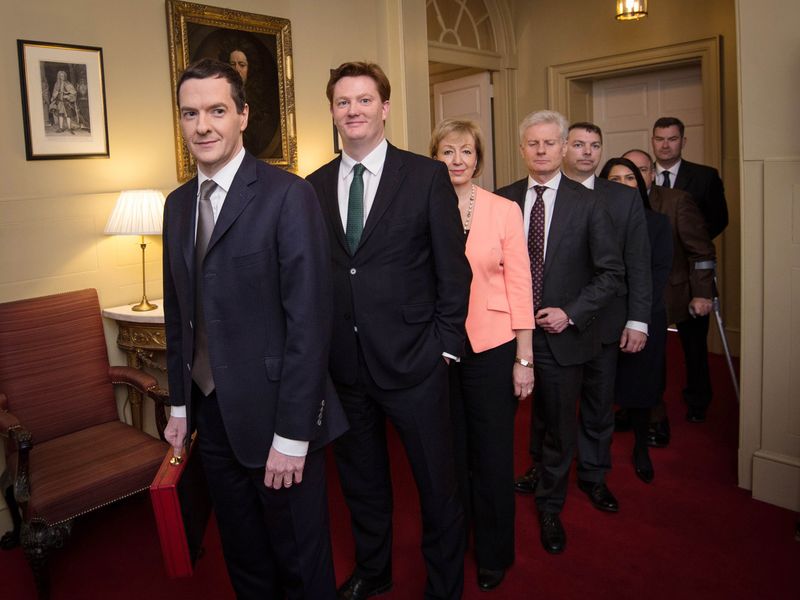By William Schomberg and Andy Bruce
LONDON (Reuters) - Chancellor George Osborne has shown a "remarkable" change of approach on public finances, a leading think tank said on Thursday, a day after Osborne scaled back his austerity plans for the end of the decade.
Paul Johnson, head of the Institute for Fiscal Studies, said the eye-catching fiscal number in a pre-election budget announced by Osborne on Wednesday was a big cut to the size of a budget surplus in the 2019/20 financial year.
"Of course surplus or deficit numbers this far in the future are of little interest in themselves – average forecast errors this far out run into the tens of billions of pounds," Johnson said at an IFS presentation.
"But the apparent change in economic philosophy in the three months since the Autumn Statement is pretty remarkable."
Osborne has made deficit reduction the central plank of his economic policy since he became Chancellor in 2010 and he is urging voters in the May 7 national election to stick with his plan to restore Britain to financial health.
But Fitch ratings credit agency said on Thursday it would be unlikely to restore Britain's top-notch sovereign credit rating, lost in 2013, until government debt started to fall steadily as a percentage of national income.
In December, Osborne said he was aiming for a budget surplus equivalent to 1 percent of gross domestic product in 2019/20.
To achieve that, public spending as a share of GDP would have to fall to its lowest level since the 1930s, Britain's independent budget forecaster said at the time, giving the opposition Labour Party ammunition to condemn Osborne for the scale of his spending squeeze if he keeps his job after May.
Osborne announced on Wednesday that the planned 2019/20 surplus had been scaled back to 0.3 percent of GDP, a lower target which did not draw such awkward historical comparisons.
The IFS comments, and Fitch's refusal to consider a credit rating upgrade anytime soon, may add to the discomfort for Osborne after his latest tax and spending plans were described as having a "rollercoaster profile" on Wednesday by Britain's budget watchdog.
The Office for Budget Responsibility said the squeeze on real spending in 2016/18 would be tougher than anything seen over the past five years. But that would be followed in 2019/20 by the biggest increase in real spending for a decade.
Osborne challenged the OBR's description of his plan.
"That is not actually the approach that we, as Conservatives, will take," he told BBC radio. "We want to take a more balanced approach and we would not put all the cuts in the government departments as the OBR forecast shows."
Osborne said spending cuts would be in line with those of recent years and he would make further savings in welfare spending and raise more tax receipts with a crackdown on tax evasion and avoidance.
Those plans were not factored into the OBR's calculations because they are not yet official policy.

Johnson of the IFS pressed Osborne to come up with details of his planned 12 billion pounds in cuts from welfare spending which were first announced two years ago. "It is time we knew more about what they might actually involve," he said.